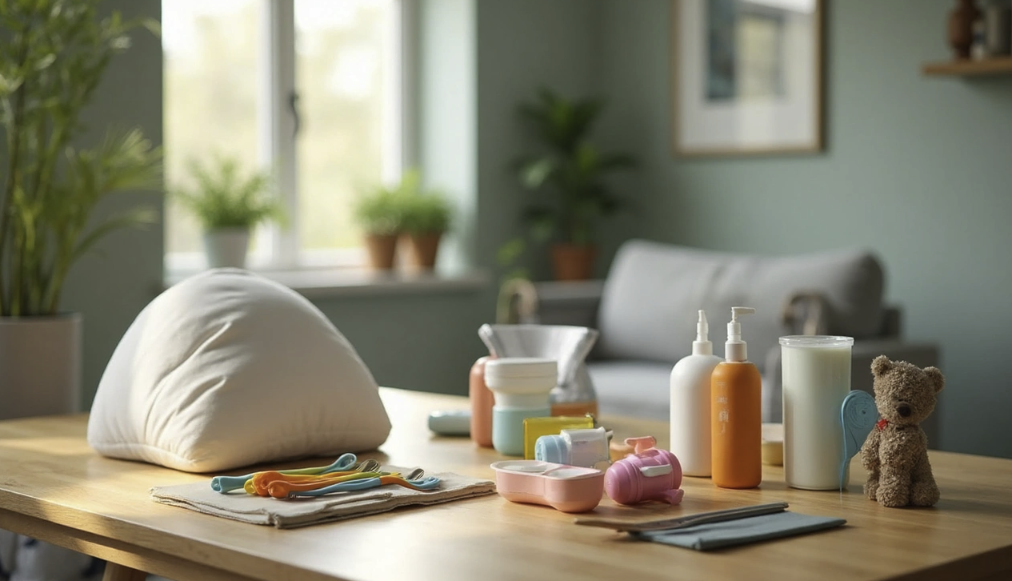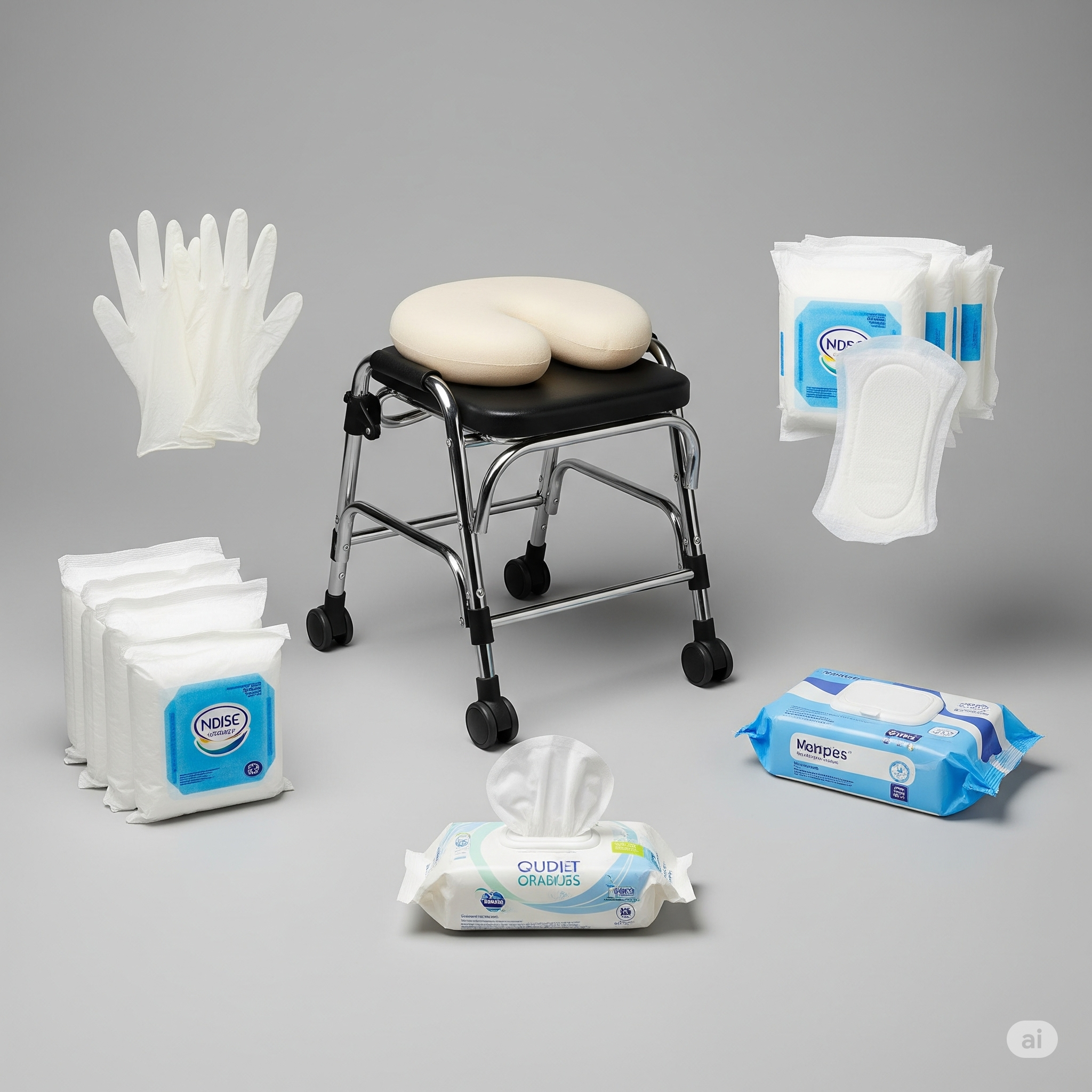
Many NDIS participants feel confused about what they can buy with their consumables funding. The rules and guidelines can be tricky to navigate, even for people who have used NDIS support services over the last several years.
This detailed guide will help you understand everything about NDIS consumables in 2025. You’ll learn about consumables; check out the updated NDIS consumables list for 2025 and see how to make your budget work better. The guide answers common questions like “What can I use my NDIS consumables budget for?” and shows you examples of approved products that support your daily needs.
What are NDIS consumables, and how do they work?
NDIS consumables are everyday items that help you manage your disability-related needs. These products boost your independence and quality of life because of your disability.
Your Core Supports budget covers these low-cost items, unlike larger equipment or high-value assistive technology. This budget helps you with daily activities and lets you work toward your NDIS plan goals. The value of each item must stay under AUD 2293.49.
Your consumables budget’s flexibility stands out as a major benefit. You can spend it based on your personal needs and circumstances, provided the purchases support your disability needs reasonably. Your allocated funding can shift between support categories if your needs change over time.
Common examples of NDIS consumables include:
-
-
- Continence products such as disposable pads, pants, and mattress protectors
- Catheters and continence-related equipment
- Home enteral nutrition (HEN) equipment
- Modified eating aids and food preparation products
- Disability-related wound care items
- Personal care and safety products
- Low-cost assistive technology like non-slip bathmats or chair raisers
Not everything qualifies as an NDIS consumable. Your regular household needs that everyone covers (like groceries, toiletries, or makeup) can’t be claimed through your NDIS budget. Your consumables must directly relate to your disability support needs. As an example, continence products won’t be covered if continence problems aren’t linked to your disability.
Tracking your consumables spending helps control your budget effectively. This ensures you make the most of available support without exceeding your allocated funding.

NDIS consumables list: What you can actually buy
The NDIS consumables budget gives you access to many everyday items that support your disability-related needs. This budget helps you get the most from your funding once you know what you can purchase. To ensure you’re making the right choices, refer to the NDIS can I buy it checklist.
The NDIS has three main categories for consumables:
- Continence-related equipment – You can get catheters, collection bags, pads, nappies, bedding protection, liners, shields, and anal plugs. The NDIS covers standard postage costs for delivery too.
- Equipment for eating and drinking – Modified eating aids, food preparation products, bottle openers, knob turners, and specialised cutlery are available to help you eat independently.
- Disability-related health equipment – This category has home enteral nutrition (HEN) equipment, nutritional supplements, and various personal care products.
The NDIS may fund sensory equipment if it helps with personal care, safety, or household tasks. This includes items like spiky fidgets, resistance bands, and emotional regulation tools.
Your consumable items must cost less than AUD 2293.49. Items above this price are mid-cost assistive technology and need different approval.
Some helpful low-cost assistive technology examples are
- Walking sticks and mobility aids cost about AUD 76.45
- Bath transfer benches and shower stools run around AUD 229.35
- Kitchen trolleys and household task utensils
- Shower chairs with adjustable arms are priced near AUD 382.25
- Rollators and four-wheeled walker frames cost approximately AUD 764.50
The NDIS does not fund standard household items, internet access, or children’s play equipment unless it meets sensory needs. Your treatment or rehabilitation items are also excluded.
Your consumables funding is flexible, but purchases must meet the “reasonable and necessary” criteria and relate to your disability support needs.
How to claim and purchase NDIS consumables
Your NDIS consumables claim and purchase process depends on your plan’s management type. You need to know your management type at the time you want to access your consumables budget.
The NDIS gives you three different management options that affect your consumables purchases:
Agency-managed funding limits you to NDIS-registered providers only. Your providers get their payment straight through the NDIS portal, which means no upfront costs. This option needs minimal paperwork but gives you the least flexibility when choosing providers.
Plan-managed funding lets you have more freedom. You get extra funding from NDIS to pay a plan manager who takes care of your invoices and financial reports and tracks your budget. You can buy from both registered and unregistered providers as long as you stick to NDIS pricing arrangements.
Self-managed funding puts you in complete control of your budget and provider choices. You can pay providers first and claim money back or get the claims approved before paying. You’ll need to keep detailed records but can negotiate prices outside NDIS limits.
Items under AUD 2293.49 usually don’t need quotes. More expensive items need at least two quotes, and you might need recommendations from an occupational therapist.
The sort of thing I love is that unregistered providers handle about two-fifths of NDIS spending. Some participants say these providers are affordable and give more flexible, person-centred service.
You can start buying consumables by looking at providers that match your plan management type. Create service agreements that spell out services and payment terms. Keep complete records of everything you buy, including receipts and invoices.
Note that whatever management type you choose, your purchases must directly support your disability needs. These records are a good way to get through compliance reviews or audits.
Plan-managed participants should fill out a Funding Authorisation Form when setting up provider accounts. Self-managed participants can claim their money back through the my NDIS app, portal, or payment request form.
Conclusion
The NDIS consumables system might feel daunting at first glance. The good thing is, knowing what items fit within your budget will enable you to maximise your funding.
Your consumables budget gives you plenty of flexibility. You can purchase items under AUD 2293.49 that directly support your disability-related needs. Keeping detailed records of all transactions is crucial, especially during compliance reviews.
Your purchases must meet the “reasonable and necessary” criteria. The items you buy should directly relate to your disability support needs rather than regular household expenses that everyone has.
Your choice of management option shapes how you access and use your consumables budget. You can choose between agency-managed, plan-managed, or self-managed options. Each choice offers different levels of control, paperwork requirements, and freedom to select providers.
The NDIS framework sets clear boundaries about what counts as a consumable. You now know how to direct yourself through these guidelines with confidence. This will help you make smart decisions that improve your independence and quality of life through your NDIS consumables funding.
-